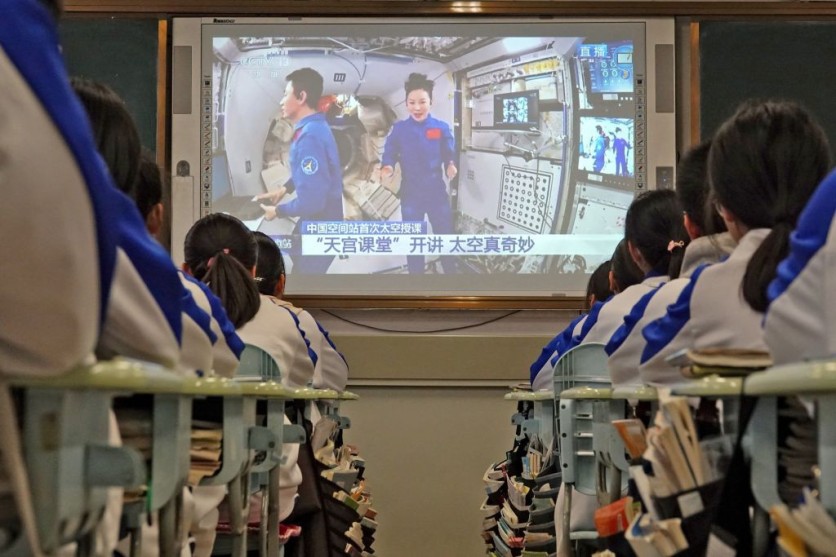China has recently announced its tests on high-grade computer processors aboard the Tiangong space station, further intensifying the tech rivalry between the United States and China (via Interesting Engineering).
The Tiangong station has emerged as a center of innovation, boasting the ability to test more than 100 computer chips simultaneously. This achievement exceeds global standards and represents a remarkable advancement in space tech.

China's Edge in Microprocessors
China is making significant strides in microprocessor testing to gain a competitive edge over its global rivals.
A report from the South China Morning Post states that over 20 advanced chips, with sizes ranging from 28 to 16 nanometers, have successfully completed rigorous tests on the space station.
These chips, designed and manufactured domestically, surpass the technology used by other countries in space, including the outdated technology utilized in NASA's recent space missions.
While NASA's technology is based on older chips, China's Tiangong station boasts more advanced processors that offer improved computing capabilities, which are vital for the future of space exploration.
Large-Scale Testing and Benefits
The scale of chip testing on the Tiangong space station is unprecedented, providing a glimpse into China's rapid advancements in space technology. During routine supply missions, astronauts transport confidential chips designed for civilian and military applications.
These chips undergo radiation testing in harsh space environments, improving technology and reducing the research and development costs associated with space-grade chips.
China's approach to large-scale testing on its self-built space station sets it apart from the International Space Station (ISS). While the ISS imposes regulations requiring detailed information disclosure for all payloads, Tiangong's autonomous status allows for confidential experiments without compromising national security and technical secrets.
Challenges in Chip Design
Chinese aerospace engineers face unique challenges as they embrace advancements like artificial intelligence. The increasing number of chip transistors makes them vulnerable to cosmic high-energy particle attacks, leading to "single-event upsets."
To tackle this, China aims to develop a diverse range of high-performance chips capable of maintaining stable and reliable operation in orbit for extended periods.
The Tiangong space station's large-scale testing is about pushing technological boundaries and preparing for China's future space endeavors. As private space companies, especially SpaceX, emerge as formidable competitors, China recognizes the need to stay ahead in the space race.
The testing on Tiangong is seen as a strategic move to develop advanced protection technologies, ensuring that a diverse array of suppliers can compete on an equal platform.
What's Next?
Chinese space experts predict an explosive global demand for high-performance, low-cost space-grade chips. China's capability to produce significant quantities of these chips at low costs positions it as a critical player in the anticipated surge.
Plans for constructing a satellite internet constellation comparable to Starlink further underscore China's commitment to meeting the growing demands for advanced space technologies.
Stay posted here at Tech Times.
Related Article : Chinese Scientists Build Hypersonic Aircraft Heat Shield Ceramic with Record Strength, Insulation

ⓒ 2026 TECHTIMES.com All rights reserved. Do not reproduce without permission.




